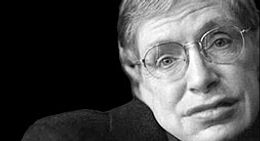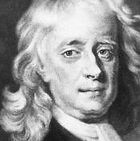

Copernicus

Stephen
Hawking
Big Names in Natural Science
Stephen Hawking is a British theoretical physicist, cosmologist, and author. He has mathematically proven the existence of black holes, and the fact that the universe has no boundaries. Hawking is truly a visionary in the world of cosmology, and he continues to baffle the world with his ground-breaking theories.
Nicolaus Copernicus was the first person to come up with a heliocentric model of our solar system. This model depicted the earth orbiting the sun which went against the accepted idea that the sun orbited the earth. Because heliocentrism shattered geocentrism, Copernicus did not publish his book on it until the year he died.
Virtually the father of modern geometry and physics, Galileo Galilei was a pioneer in the Scientific Revolution. He was best known for his heliocentric model of the universe, confirming Copernicus's work. Galileo also became famous after developing the law of the pendulum, and creating a geometric compass. Galileo has made many contributions to science by his critical observations of the solar system, and his development of scientific theories that have advanced the world of science.
Sir Issac Newton, an English Physicist, Mathematician, Astronomer, Philosopher, and Alchemist, certainly has his fair share of contributions to science. The standard refracting telescope of Newton's time was replaced by his own invention of the reflecting telescope, using mirrors instead of lenses. Whether it is for his laws of motion, or his theories about light and color, Newton certainly is the father of modern science.

Galileo

Newton

Carl Sagan
Sagan may have been the most famous scientist of the late 20th century. He was an astronomer, known for his dedication to the exploration of space and his contributions to better our understanding of the planets in our solar system. Sagan is regarded as a natural teacher who was great at explaining his extensive research to the public.